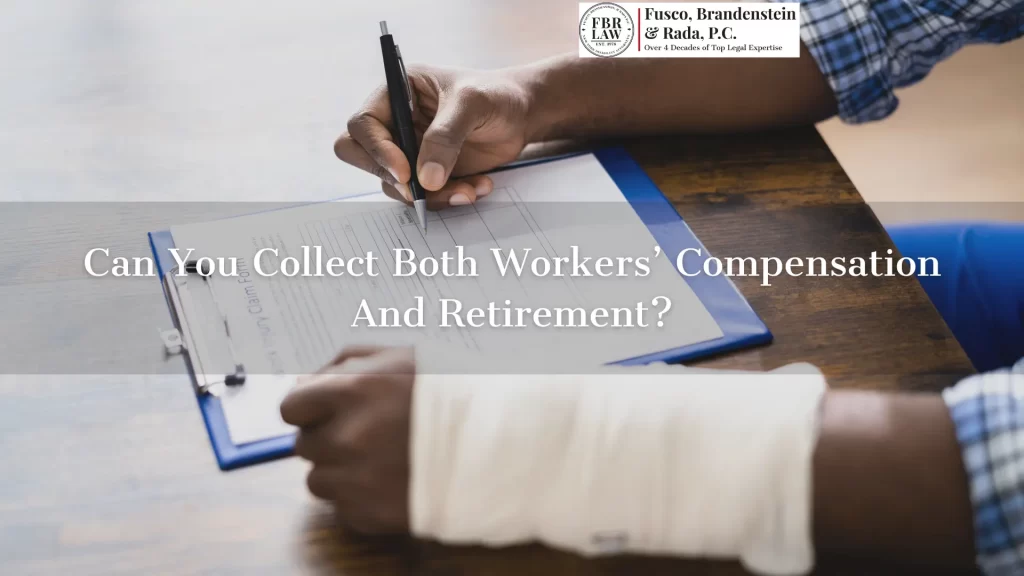
If you’ve spent decades building your career, a severe injury or illness is devastating, especially work-related ones. Not only do you have to pay for your medical treatments without a steady income, but you might also reach the point where retiring seems like a better option than continuing to work. But if you receive workers’ compensation for your injury or illness, will these benefits continue when you retire? Can you afford to retire without these benefits? It’s crucial to answer the question if you can collect both workers’ compensation and retirement benefits at the same time before making any retirement decisions.
In many cases, it’s possible to keep at least some of your workers’ compensation benefits when you retire, and the team at Fusco, Brandenstein & Rada, P.C. can help you maximize your benefits. Our New York workers’ compensation attorneys understand the complex regulations involved in these cases and can answer your concerns clearly. How workers’ compensation affects retirement benefits, and vice-versa, is a complicated topic, and this blog aims to answer any questions you might have.
Voluntary vs. Involuntary or Forced Retirement
The most significant factor in whether you keep your workers’ comp benefits after retiring is whether you retired by choice. If you choose to retire, you might face some hurdles in continuing to receive workers’ comp benefits. The rationale is that these benefits compensate you for lost wages due to a work-related injury or illness. When you voluntarily retire, your employer will likely see that as you choose not to work instead of being unable to work due to injury or illness. Accordingly, your employer might reduce or terminate your benefits.
On the other hand, involuntary retirement is a different scenario. In these cases, you usually can continue receiving workers’ compensation benefits. The justification is that you did not retire by choice, but instead due to a work-related disability, making you eligible for ongoing benefits.
It’s crucial to understand that these general rules are subject to individual circumstances and legal specifics. It’s always advisable to seek professional legal counsel to understand your situation fully.
Medical Benefits vs. Wage-Replacement Benefits
Wage-replacement benefits compensate you for lost income due to work-related injuries or illness. If you retire voluntarily or involuntarily, you might lose some or all of these benefits because you have left the workforce. In essence, you’re not losing wages due to your injury because you’re no longer actively earning. However, this is not an absolute rule, and individual circumstances can impact this outcome.
Medical benefits, on the other hand, cover the cost of treatment for work-related injuries or illnesses. These benefits are generally not impacted by your retirement status. The underlying rationale is that your retirement does not change the fact that your injury occurred on the job. Therefore, you are still entitled to have your work-related medical expenses covered by workers’ compensation.
Temporary vs. Permanent Disability Benefits
 Retirement can have diverse effects on different disability benefits received through workers’ compensation. It’s important to distinguish between temporary and permanent disability benefits in this context.
Retirement can have diverse effects on different disability benefits received through workers’ compensation. It’s important to distinguish between temporary and permanent disability benefits in this context.
Temporary disability benefits are for workers who cannot perform their usual job duties for a brief period due to a work-related injury or illness. The aim is to replace lost wages during the period of recovery. If you retire while receiving these benefits, the benefits may undergo reduction or discontinuation. The reasoning is that you’re no longer participating in the labor force and, thus, not losing any wages due to your injury.
Permanent disability benefits, however, are a bit different. These are meant for workers who cannot return to their previous job or any other job due to a work-related injury or illness. If you retire while receiving these benefits, the impact depends on whether your retirement is voluntary or involuntary, as discussed earlier.
In cases of voluntary retirement, you may experience a reduction or termination of these benefits. Conversely, if your retirement was involuntary due to a disability, you typically remain eligible to receive these benefits.
If you’re considering retirement and want to explore the possibility of collecting both workers’ compensation and retirement at the same time, it’s essential to consult with a legal expert who can assess your unique circumstances and guide you through the process.
How Workers’ Comp Affects Social Security Retirement Benefits
You can collect workers’ compensation and Social Security retirement benefits simultaneously. However, the key thing to remember is that the sum of these benefits cannot exceed 80 percent of your average earnings before your disability. This rule is often called the Workers’ Compensation Offset.
The Workers’ Compensation Offset means that if the combined amount of your workers’ compensation and Social Security retirement benefits exceeds this limit, your Social Security benefits will be reduced accordingly to bring the total back down to the 80 percent limit. These calculations can be complex, and the offset rule does not apply in the same way in every state. In some states, instead of reducing your Social Security benefits, the state may reduce your workers’ compensation benefits.
The New York workers’ comp lawyers at Fusco, Brandenstein & Rada, P.C. can help you make the most of your workers’ comp, disability, and Social Security benefits so you can retire comfortably after a severe injury or illness. Call 516-496-0400 today or reach out online for a complimentary consultation.
Related Reading:
